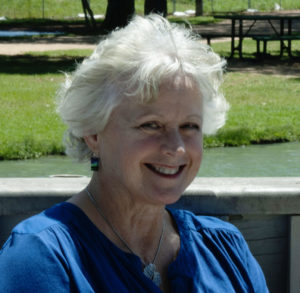Years ago in a ministry at church, I found myself at loggerheads with another woman working on the same project. Although we had similar objectives, we completely clashed in our methodology. I became discouraged and frustrated that she seemed so inflexible and unwilling to consider my point of view.
But sometime prior to this, my husband and I had been convicted that whenever we had problems with someone, we should begin praying for them. So grudgingly, I started praying for her.
A few weeks later . . . after we started praying for her, my husband and I were thrust into a social setting with her and her husband. As we spent time talking together, we found we had a lot in common . . . and we enjoyed them! Within about six months, they had become some of our best friends.
What was even more surprising is that when we applied this principle to other problem relationships as well, the outcome was similar. Again and again, when we had trouble with someone and prayed for them specifically, they ended up becoming especially good friends. It happened so often, in fact, that it became almost funny. Anytime we had problems with someone and prayed for them, we wondered if they’d end up becoming some of our best friends.
The Paradox
While our human logic often tells us to react according to fleshly inclinations, the paradox of following God is that when we do what God asks us to do, we find it’s His leading and His ways that produce the positive consequences we desire. Too often, however, we react in the flesh and, instead of seeking God, we take the opposite path and wind up with problems we could have avoided.
In a troublesome relationship, arguing, becoming aloof, or maneuvering our way around the situation seems a much more logical approach than praying for someone who annoys us, hurts us, angers us, or causes us problems.
But God, in His infinite wisdom, whose thoughts and ways are higher than ours, has a different way. And He wants us to come to Him to find out what it is. For when we do, we will discover that his paradox, although hard to understand, takes us into the more abundant life we’re looking for.
An Unexpected Response
In the story of Job, when everything in his life fell apart, friends allegedly came to comfort him. But instead they accused him, vilified him, doubted his integrity and caused him great grief.
During these exchanges with his friends, Job continually sought God to come and talk to him. When God did come and answer Job, God told Job to pray for these men who had been so unkind and tactless.
[The Lord] said to Eliphaz the Temanite, “I am angry with you and your two friends . . . . My servant Job will pray for you, and I will accept his prayer and not deal with you according to your folly.”Job 42:7, 8b
At this declaration from God, I wonder if Job’s first inclination was to do a double take. “Huh? Me pray for them? After all their accusations in the midst of my suffering?”
But Job did what the Lord said to do. Job prayed for his friends.
“And the Lord accepted Job’s prayer.” Job 42:9
But not only did God “accept” Job’s prayer, God used Job’s praying for his friends to bless Job as well . . . in amazing ways.
“After Job had prayed for his friends, the Lord made him prosperous again and gave him twice as much as he had before.” Job 42:10
The Paradox of Job’s Prayer
Job’s prayers are what let his friends off the hook with God so He did not punish them. And after Job prayed for his friends, the Lord healed him and blessed him. But why didn’t God just forgive Job’s friends on His own if He wanted to do that and bless Job as He apparently wanted to do? Why put that responsibility on Job when he was hurting and had reason to resent his friends’ actions?
Because God was doing something that transcends our human understanding. In the spiritual realm, actions that seem paradoxical to our human flesh often bring about shifts in heavenly places. By praying for his friends, Job humbled himself to acknowledge that God’s understanding was far beyond his own and that surrendering to God’s unfathomable ways was the key to living a life pleasing to God.
This principle applies to some of the deeper and stickier issues of life as well.
In my ministry to people who are separated or in a martial crisis, one of the things I often encourage them to do is to completely focus on God and “let go” of their spouse. But I frequently get this question as a result. “Does letting go mean that I should stop praying for him/her?”
In my response I urge them to simply let go of the expectations that God will do what they want Him to do and just pray that God will bless their spouse with a new love for God and an enlightened and discerning heart. No strings attached.
It’s not what we want to do in the natural. Our flesh rails against the idea. We want the strings. But the humility of our obedience even though it turns our hearts inside out, reaches the heart of God. With our hearts softened and malleable to His touch, our hurts become a spiritual sacrifice that He uses to bless us and give us a transformed heart, mind, and life.
God’s paradox is our lifeline to His heart.
If your marriage needs to turn around, Fighting for Your Marriage while Separated, can take you in a new direction.





















